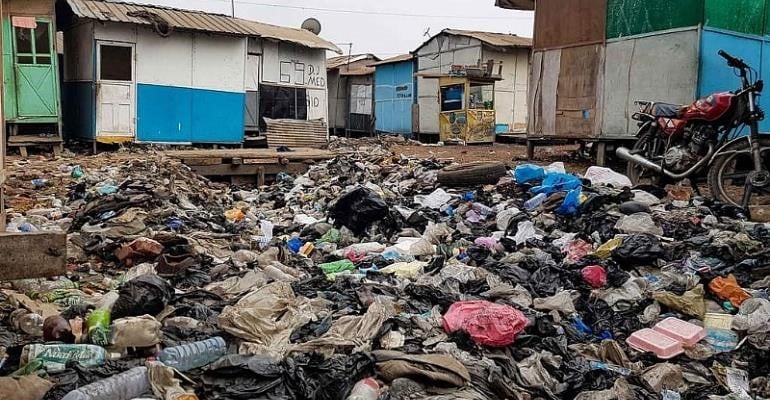Ghana’s plastic waste crisis presents a significant environmental and economic challenge. The nation generates a staggering 1.1 billion units of plastic waste annually, with a mere 9% being recycled. A significant portion, 41%, is collected, leaving a concerning 50% uncollected, contributing to widespread pollution. The financial burden of managing this waste is substantial, costing the country nearly $6 billion annually in cleanup efforts. This underscores the urgent need for comprehensive strategies to address plastic waste management, including improved collection systems, increased recycling capacity, and public awareness campaigns to promote responsible plastic consumption and disposal practices.
The ramifications of plastic pollution extend beyond Ghana’s borders, impacting the entire African continent. Research indicates that Africa generates approximately 17 billion units of plastic waste each year, incurring a cost of nearly $561 billion. This highlights the widespread nature of the plastic pollution problem and the need for collaborative, continent-wide initiatives to mitigate its effects. Such initiatives could include sharing best practices in waste management, developing regional recycling infrastructure, and promoting sustainable alternatives to plastic. The economic burden imposed by plastic waste underscores the importance of investing in sustainable solutions that not only protect the environment but also contribute to economic development.
The environmental and health consequences of plastic pollution are dire. Plastic waste contaminates water bodies, harming aquatic life and disrupting ecosystems. It contributes to biodiversity loss, threatening the delicate balance of nature. Furthermore, the production and disposal of plastics release greenhouse gases, exacerbating climate change. The presence of harmful chemicals like Bisphenol A, Dioxin, and flame retardants in plastics poses significant health risks, including cancer, reproductive and developmental issues, immune system damage, and metabolic disorders such as diabetes, obesity, and infertility. Addressing these health concerns requires a multi-pronged approach that includes stricter regulations on the production and use of plastics containing harmful chemicals, promoting safer alternatives, and raising public awareness about the health risks associated with plastic exposure.
Livelihood and Environment Ghana (LEG), a non-governmental organization dedicated to environmental sustainability and socio-economic development, is playing a crucial role in tackling Ghana’s plastic waste challenge. LEG advocates for responsible plastic use and disposal, promotes environmental awareness, and actively participates in initiatives to restore degraded environments. The organization’s commitment to regreening efforts and supporting the government’s Tree4Life Reforestation initiative demonstrates its dedication to restoring the nation’s forest cover and promoting sustainable environmental practices. LEG’s work emphasizes the importance of community-based solutions and partnerships between NGOs, government agencies, and local communities in addressing environmental challenges.
The Tree4Life Reforestation initiative, launched by former President John Dramani Mahama, represents a significant national effort to restore Ghana’s depleted forests. Forests play a vital role in providing essential resources such as food, water, medicine, and employment opportunities for many Ghanaians. The initiative aligns with the United Nations Sustainable Development Goals (SDGs), specifically Goal 11, which focuses on creating sustainable cities and communities, and Goal 13, which addresses climate action. By restoring forest cover, the initiative contributes to enhancing urban resilience, mitigating climate change, and promoting sustainable development.
The implementation of the Tree4Life initiative contributes to Ghana’s progress towards achieving SDGs 11 and 13. SDG 11 aims to make cities and communities inclusive, safe, resilient, and sustainable. By restoring forests and promoting green spaces, the initiative contributes to creating healthier and more sustainable urban environments. SDG 13 focuses on taking urgent action to combat climate change and its impacts. Reforestation plays a critical role in mitigating climate change by absorbing carbon dioxide from the atmosphere and promoting biodiversity. The Tree4Life initiative exemplifies Ghana’s commitment to achieving the SDGs and promoting sustainable development.


